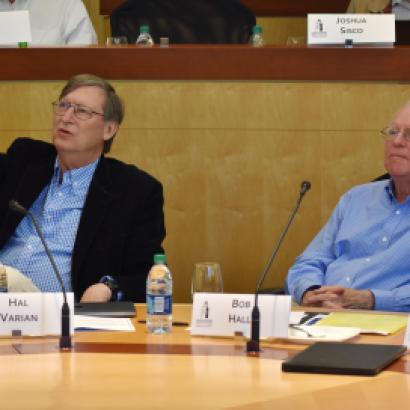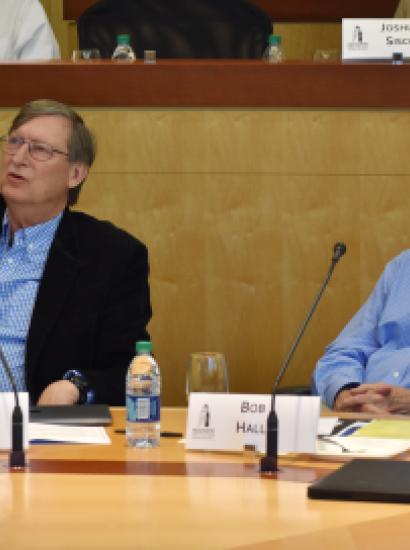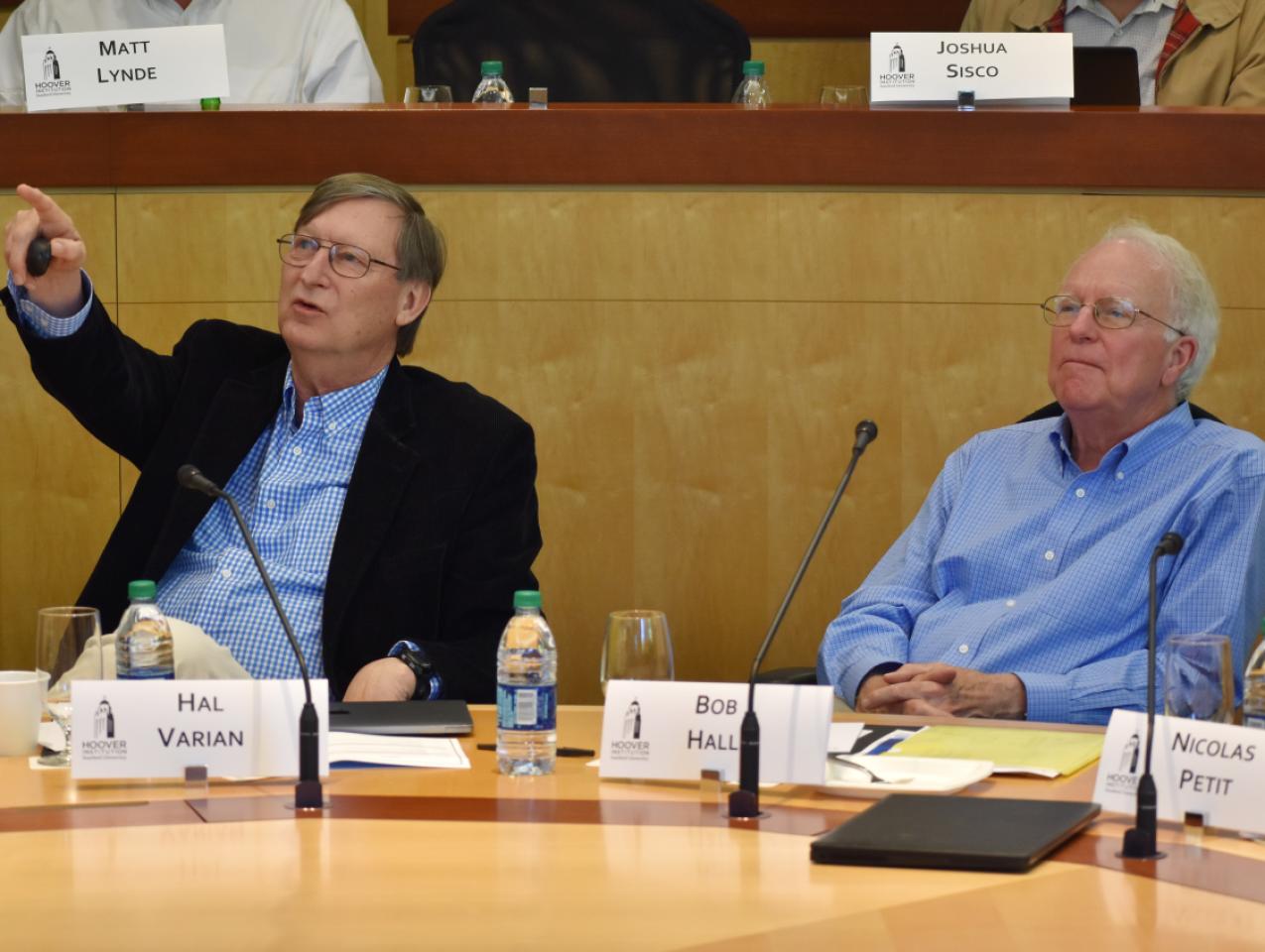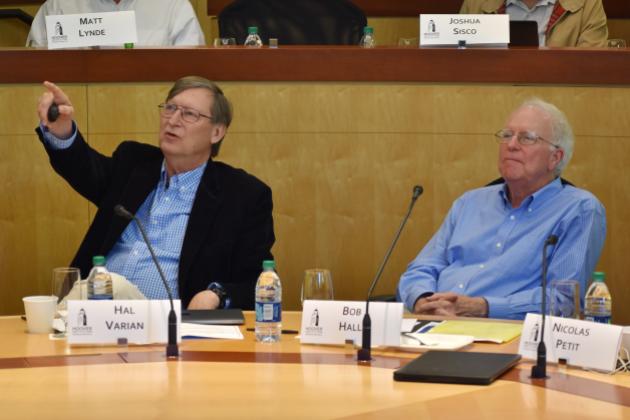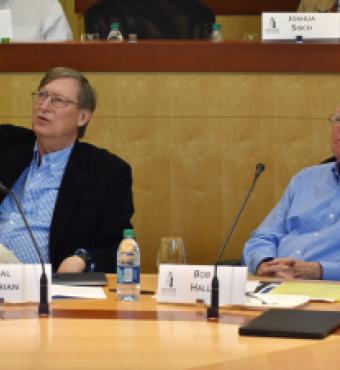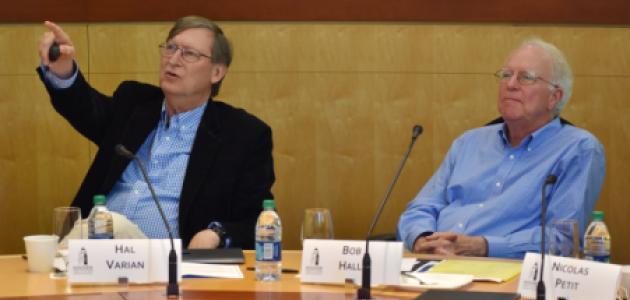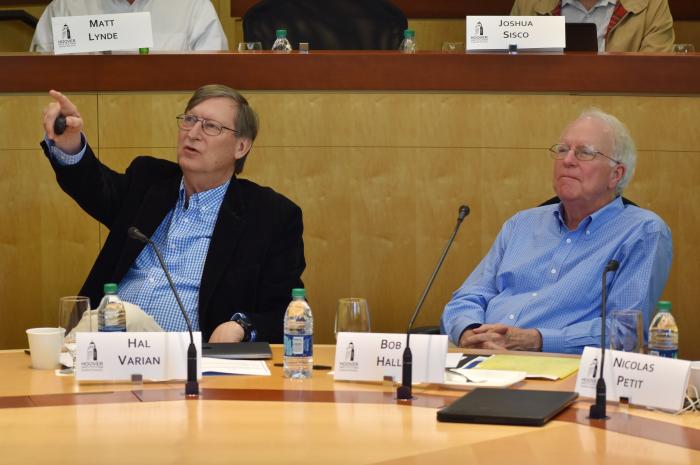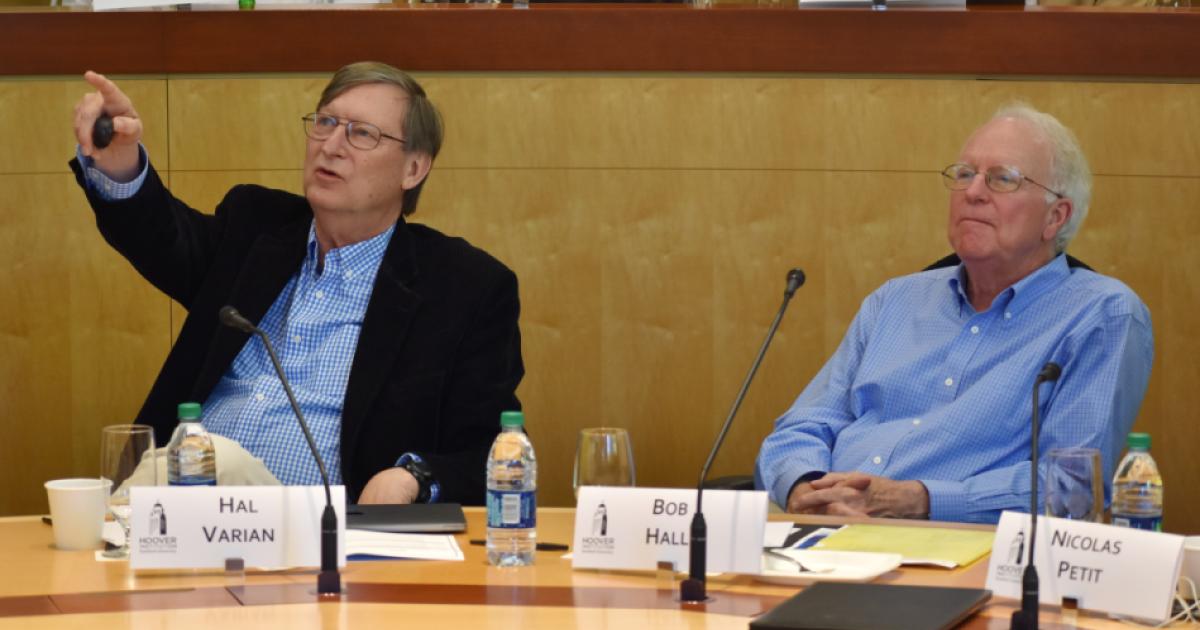Some from the “New Chicago School” of economics claim big companies “might use their market power to hurt employees,” stifle competition, and reduce economic growth. “Not so fast,” said a group of economists and legal scholars at a symposium held at the Hoover Institution on June 29.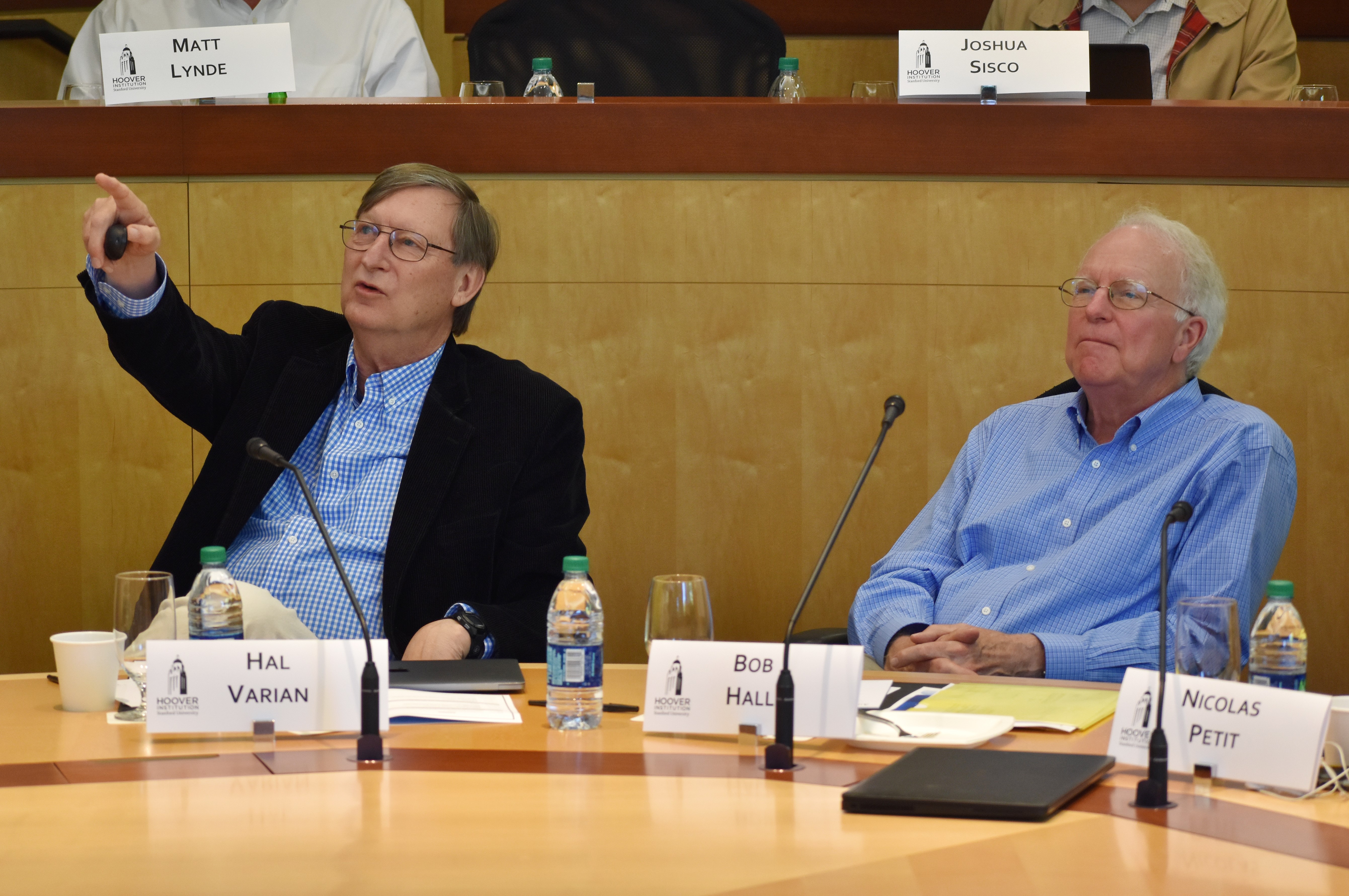
In his opening remarks, Hoover Institution research fellow Richard Sousa noted that the emergent large industry leaders and dominant firms are increasingly operating under the shadow of government intervention and regulation because of allegations of monopoly power, exacerbating income inequality, and privacy and security concerns. Visiting fellow Nicolas Petit who organized the symposium on Corporation Size, Industry Concentration, and Public Policy in the Twenty-First Century said the aim was to “examine the impact of large firms in high tech on employment, market power, and firm culture and, further, to see if there are, in fact, legitimate antitrust concerns.”
Providing a brief history of trustbusting, William Kovacic, former head of the Federal Trade Commission and currently a law professor at George Washington University, noted that the economic impact of antitrust enforcement of dominant firms in the twentieth century (e.g., AT&T, IBM, Microsoft, Xerox, Standard Oil) was mixed. The AT&T breakup is sometimes called the deal of the century, as it separated service provision and tie-in equipment sales. Other cases, such as IBM and Microsoft, have had an impact on corporate and innovation culture. Decades of scholars, however, feel the overall impact of the antitrust cases remains in question.
Hoover Institution senior fellow Robert Hall showed that market power across industries has increased in the last three decades but not at the high rates estimated by others. Moreover, the market power of firms with more than 10,000 employees has risen only slightly, varies greatly across industries, and contributes only marginally to the slight increase in market power in their industries.
Hal Varian, chief economist at Google, showed that the largest high tech firms may be leaders in slices of the industry, but that they compete intensely with one another in virtually all aspects of tech. Their profits are the results of technical advantages. He added that competition among incumbents and the low costs for new entrants into the industry have led to rapid innovation and lowered product prices over the past twenty years.
In his presentation, Petit showed that the firms that make up the FAANG colossus (Facebook, Apple, Amazon, Netflix, and Google) are diversifying and growing in giant conglomerates. But he demonstrated that they are also investing heavily in R&D. FAANG are competing in industries characterized by rapid change, and they are aware that whatever advantage they may currently enjoy is fragile and transient. Although, today, they may maintain dominant positions, they are competing to stay ahead of unknown rivals creating new and disruptive technologies.
This symposium was the first in a series that will bring together researchers examining the impact of large firms on the US economy, consumer welfare, and technical change and innovation.







